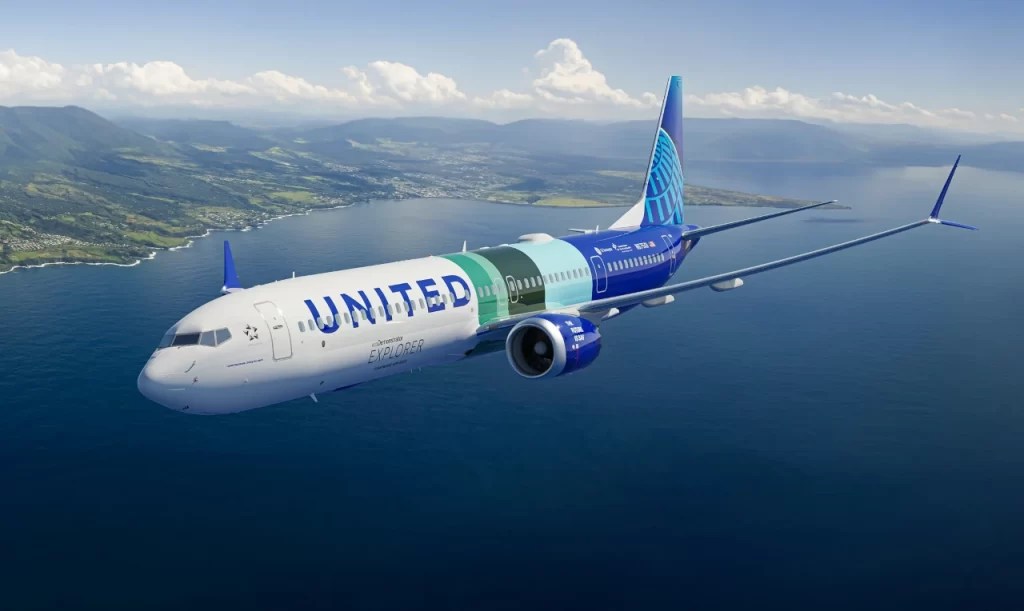Boeing is collaborating with United Airlines and NASA to conduct in-flight testing of sustainable aviation fuel (SAF) to reduce the fuel’s life cycle climate impact and assess its effect on contrails and non-carbon emissions to promote sustainability in aviation.
During testing, United Airlines’ 737-10 ecoDemonstrator Explorer, the second aircraft from Boeing, will operate using alternate fuels and 100% SAF in distinct tanks dedicated to each fuel type. The DC-8 Airborne Science Lab of NASA will track the commercial aircraft while measuring the contrail ice and fuel particles’ emissions. As part of the experimentation, images of contrail formation will be acquired by NASA satellites.
The researchers aim to comprehend the potential of enhanced fuels, engine combustor designs, and other technologies in mitigating atmospheric warming. Analyses will determine, for instance, the effect of SAF on the properties of contrails, which are the enduring condensation trails generated when aircraft traverse through low-temperature, humid atmospheres. Although the complete extent of their effects remains unknown, certain contrails may capture heat in the atmosphere, according to some research.
World Energy is supplying SAF for the experiments from its facility in Paramount, California. Funding is being provided by the Federal Aviation Administration (FAA) of the United States via the ASCENT Centre of Excellence. GE Aerospace is funding the initiative and contributing technical expertise. The German Aerospace Centre (DLR, also known as the Deutsches Zentrum für Luft- und Raumfahrt) supplies instrumentation and specialists.

A multi-year collaboration between Boeing and NASA to determine how SAF can reduce emissions and facilitate additional environmental benefits has culminated in this endeavour. SAF produces the greatest potential to reduce aviation CO2 over the next 30 years and can reduce emissions by up to 85% over the fuel’s life cycle compared to conventional jet fuel. It is derived from a variety of sustainably produced feedstocks. Additionally, less soot is produced by SAF, which can enhance air quality near airports.
This year saw the addition of Explorer aircraft to the Boeing ecoDemonstrator programme, which focuses on short-term, project-specific testing. In 2021 and 2022, Boeing and NASA ground-tested SAF emissions on an Alaska Airlines 737-9 and ecoDemonstrator 777-200ER and 787-10 flight-test aircraft. Boeing has pledged to provide 100% SAF-compatible commercial aircraft by 2030.
Boeing’s single-aisle 737 MAX family, of which the 737-10 is the largest, reduces fuel consumption and emissions by 20% compared to the aircraft it replaces.

